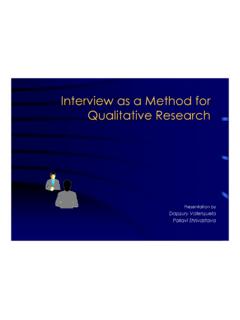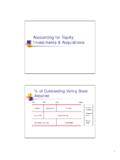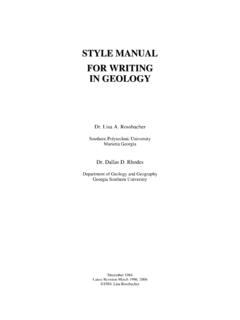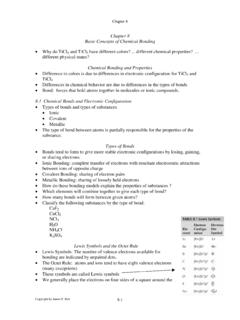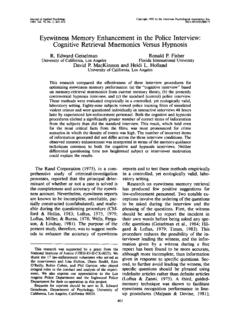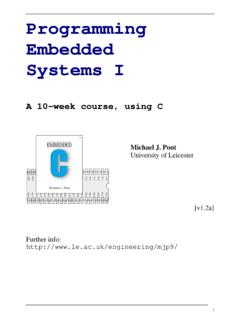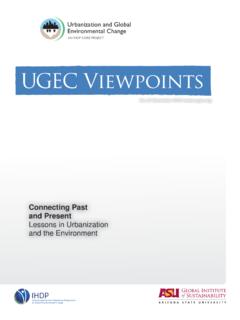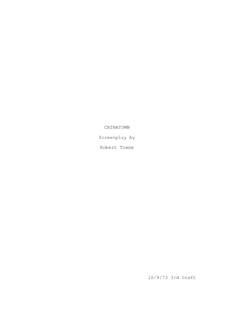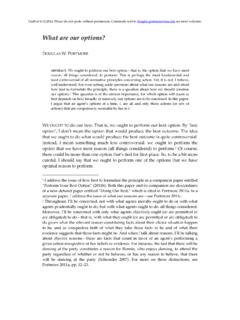Transcription of DEVELOPING HYPOTHESIS AND RESEARCH QUESTIONS
1 DEVELOPING HYPOTHESES& RESEARCH QUESTIONSS haliniPrasadAjith Rao Eeshoo Rehani500 RESEARCH METHODSSEPTEMBER 18TH2001 DEVELOPING HYPOTHESIS AND RESEARCH QUESTIONSDEVELOPING HYPOTHESES& RESEARCH QUESTIONS Introduction Processes involved before formulating the hypotheses. Definition Nature of HYPOTHESIS Types How to formulate a Hypotheses inQuantitative ResearchQualitative RESEARCH Testing and Errors in Hypotheses SummaryDEVELOPING HYPOTHESES& RESEARCH QUESTIONSThe RESEARCH structure helps us create RESEARCH that is.
2 Quantifiable Verifiable Replicable DefensibleCorollaries among the model, common sense & paper formatModelCommon SensePaper FormatResearch QuestionWhyIntroDevelop a TheoryYour Answer IntroIdentify Variables (if applicable)HowMethodIdentify hypothesesExpectations MethodTest the hypothesesCollect/Analyze data ResultsEvaluate the ResultsWhat it MeansConclusionCritical ReviewWhat it doesn t MeanConclusionDEVELOPING HYPOTHESES& RESEARCH QUESTIONSMost RESEARCH projects share the same general structure, which could be represented in the shape of an hourglass.
3 BEGIN WITH BROAD QUESTIONSNARROW DOWN, FOCUS INOPERATIONALIZEOBSERVEANALYZE DATAREACH CONCLUSIONSGENERALIZE BACK TO QUESTIONSThe Hourglass notion of researchDEVELOPING HYPOTHESES& RESEARCH QUESTIONSSome of the methods that are included for RESEARCH formulation are Where does the problem origination or discovery begin?Previous ExperienceTriggered InterestPotential problem fields Criteria of problems and problem statement Goals & Planning Search, Explore & Gather the Evidence Generate creative and logical alternative solutionsMaking the educated guess-the HYPOTHESIS !
4 DEVELOPING HYPOTHESES& RESEARCH QUESTIONSD efinitions of HYPOTHESIS Hypotheses are single tentative guesses, good hunches assumed for use in devising theory or planning experiments intended to be given a direct experimental test when possible . (Eric Rogers, 1966) A HYPOTHESIS is a conjectural statement of the relation between two or more variables . (Kerlinger, 1956) HYPOTHESIS is a formal statement that presents the expected relationship between an independent and dependent variable. (Creswell, 1994) A RESEARCH question is essentially a HYPOTHESIS asked in the form of a question.
5 DEVELOPING HYPOTHESES& RESEARCH QUESTIONSD efinitions of HYPOTHESIS It is a tentative prediction about the nature of the relationship between two or more variables. A HYPOTHESIS can be defined as a tentative explanation of the RESEARCH problem, a possible outcome of the RESEARCH , or an educated guess about the RESEARCH outcome. (Sarantakos, 1993: 1991) Hypotheses are always in declarative sentence form, an they relate, either generally or specifically , variables to variables. An HYPOTHESIS is a statement or explanation that is suggested byknowledge or observation but has not, yet, been proved or disproved.
6 (MacleodClark J and Hockey L 1981) DEVELOPING HYPOTHESES& RESEARCH QUESTIONSN ature of HYPOTHESIS The HYPOTHESIS is a clear statement of what is intended to be investigated. It should be specified before RESEARCH is conducted and openly stated in reporting the results. This allows to:Identify the RESEARCH objectivesIdentify the key abstract concepts involved in the researchIdentify its relationship to both the problem statement and the literature review A problem cannot be scientifically solved unless it is reducedto HYPOTHESIS form It is a powerful tool of advancement of knowledge.
7 Consistent with existing knowledge and conducive to further enquiry DEVELOPING HYPOTHESES& RESEARCH QUESTIONSN ature of HYPOTHESIS It can be tested verifiable or falsifiable Hypotheses are not moral or ethical QUESTIONS It is neither too specific nor to general It is a prediction of consequences It is considered valuable even if proven falseDEVELOPING HYPOTHESES& RESEARCH QUESTIONSAn the following situation: You are a nutritionist working in a zoo, and one of your responsibilities is to develop a menu plan for the group of monkeys.
8 In order to get all the vitamins they need, the monkeys have to be given fresh leaves as part of their diet. Choices you consider include leaves of the following species: (a) A (b) B (c) C (d) D and (e) E. You know that in the wild the monkeys eat mainly B leaves, but you suspect that this could be because they are safe whilst feeding in B trees, whereas eating any of the other species would make them vulnerable to predation. You design an experiment to find out which type of leaf the monkeys actually like best: You offer the monkeys all five types of leaves in equal quantities, and observe what they are many different experimental hypotheses you could formulate for the monkey study.
9 For example:When offered all five types of leaves, the monkeys will preferentially feed on B leaves. This statement satisfies both criteria for experimental hypotheses. It is a Prediction:It predicts the anticipated outcome of the experiment Testable: Once you have collected and evaluated your data ( observations of what the monkeys eat when all five types of leaves are offered), you knowwhether or not they ate more B leaves than the other types. DEVELOPING HYPOTHESES& RESEARCH QUESTIONSI ncorrect hypotheses would include:When offered all five types of leaves, the monkeys will preferentially eat the type they like best.
10 This statement certainly sounds predictive, but it does not satisfy the second criterion: there is no way you can test whether it is true once you have the results ofyour study. Your data will show you whether the monkeys preferred one type of leaf, but not whythey preferred it ( , they like it best). I would, in fact, regard the above statement as anassumptionthat is inherent in the design of this experiment, rather than as a offered all five types of leaves, the monkeys will preferentially eat B leaves because they can eat these safely in their natural statement is problematic because its second part ('because they can eat these safely in their natural habitat') also fails to satisfy the criterion of testability.
